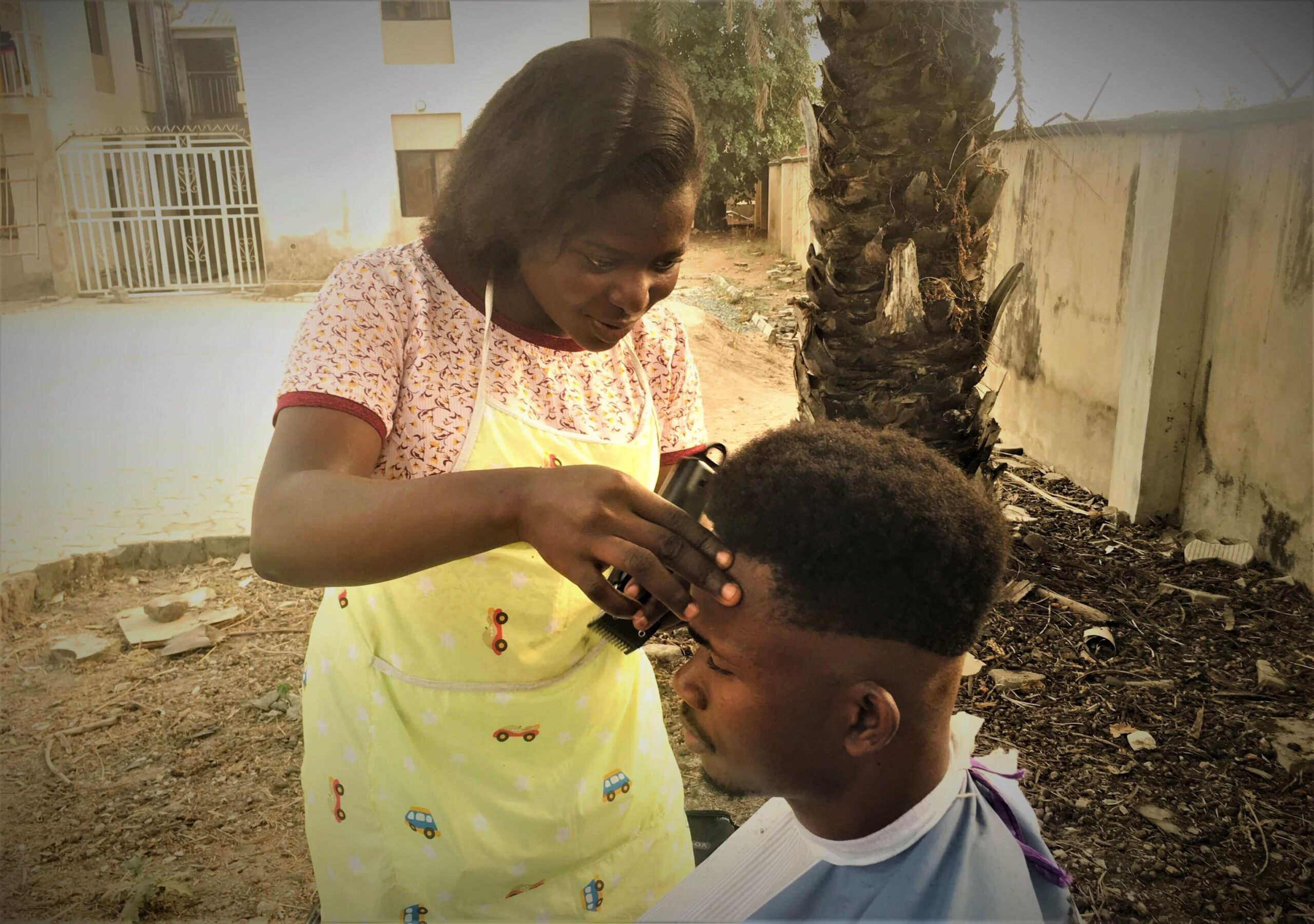There are nearly uncountable millions of barber shops catering to tens of millions of citizens across Nigeria. But there are only a handful of female barbers in these shops; these are defying gender role stereotypes with a solid conviction that the skill is not gender specific.
Simisoluwa Olaseinde, a 21-year-old female student at Ekiti State University, is one of the few.
“While I was preparing for my UTME (Unified Tertiary Matriculation Examination, a university entry exam) in 2018, that was when I told my dad and mum that I also wanted to learn barbing,” she said.
But that is a somewhat awkward desire for a lady, her parents thought. So they withheld their support initially.
“At first, my parents were amazed and did not take me seriously. But when they later discovered my unflinching desire and enthusiasm, they began to support me,” Olaseinde said.
But it took her until 2020 while waiting for her university admission, to start learning the skill at Akenfa 3, a community in Yenogoa, the capital of Bayelsa State, where they live. She is now a professional barber. She barbs fellow students on weekends to earn extra income.
For Olaseinde, the world is limitless and full of possibilities devoid of gender bias or socially constructed limitations.
“We should stop focusing so much on gender and stop classifying jobs based on gender. If you feel you’re intelligent or strong enough to do a particular job, I feel the person should be free to do it. At least, skill has no gender,” she told Prime Progress.
She said the support she got from her parents and a few friends -despite their initial hesitation – helped her stay consistent and grow.
“My father, Olabisi Olaseinde, would come to the saloon in the evening to pick me up. At some point, I had to extend my closing hour to 9:30 pm because of the number of customers queuing for our service. Even though my father was concerned about the time, he was convinced when he saw my unflinching passion for my craft,” she said.
But giving males beautiful haircuts means “Some [men] in my workplace would make silly advances. They would say things like ‘This one won’t last long here’ and ‘Why would a lady be in that line of job if not to sell her body.‘”
Workplace stereotypes are rife in Nigeria. In 2018, the Council on Foreign Relations or CFR under the Women’s Workplace Equality Index ranked Nigeria 87th among 100 countries that refused to enforce workplace non-discrimination.
Olaseinde said her reason for going into barbing was so she could become a financially independent woman. And she has become one because she makes enough money to cater to her needs without depending on her parents. But having to stand long hours barbing has gravely impacted her health.
“My back often aches. It became worse when I started learning [at the university]. [I was] visiting the hospital, doing all kinds of treatment (X-rays). Sometimes, I am placed on analgesics, and sometimes I have to visit orthopaedics and physiotherapy sessions,” she said.
In Nigeria, barber shops primarily cater to men, with women rarely seen in the profession. However, 21-year-old Simisoluwa Olaseinde defies this norm. A student at Ekiti State University, Olaseinde expressed her interest in barbing in 2018. Despite initial skepticism from her parents, they eventually supported her passion.
Olaseinde began learning in 2020, becoming a professional and earning extra income by cutting fellow students' hair. She advocates for a world without gender biases, emphasizing that job skills are not gender-specific. Her parents' support, especially her father's daily pick-ups from the salon and acceptance of her late working hours, played a crucial role in her journey.
Despite facing workplace discrimination and stereotypes, Olaseinde continues with her craft to achieve financial independence. However, the physically demanding nature of the job has adversely affected her health, leading to frequent medical visits and treatments.






